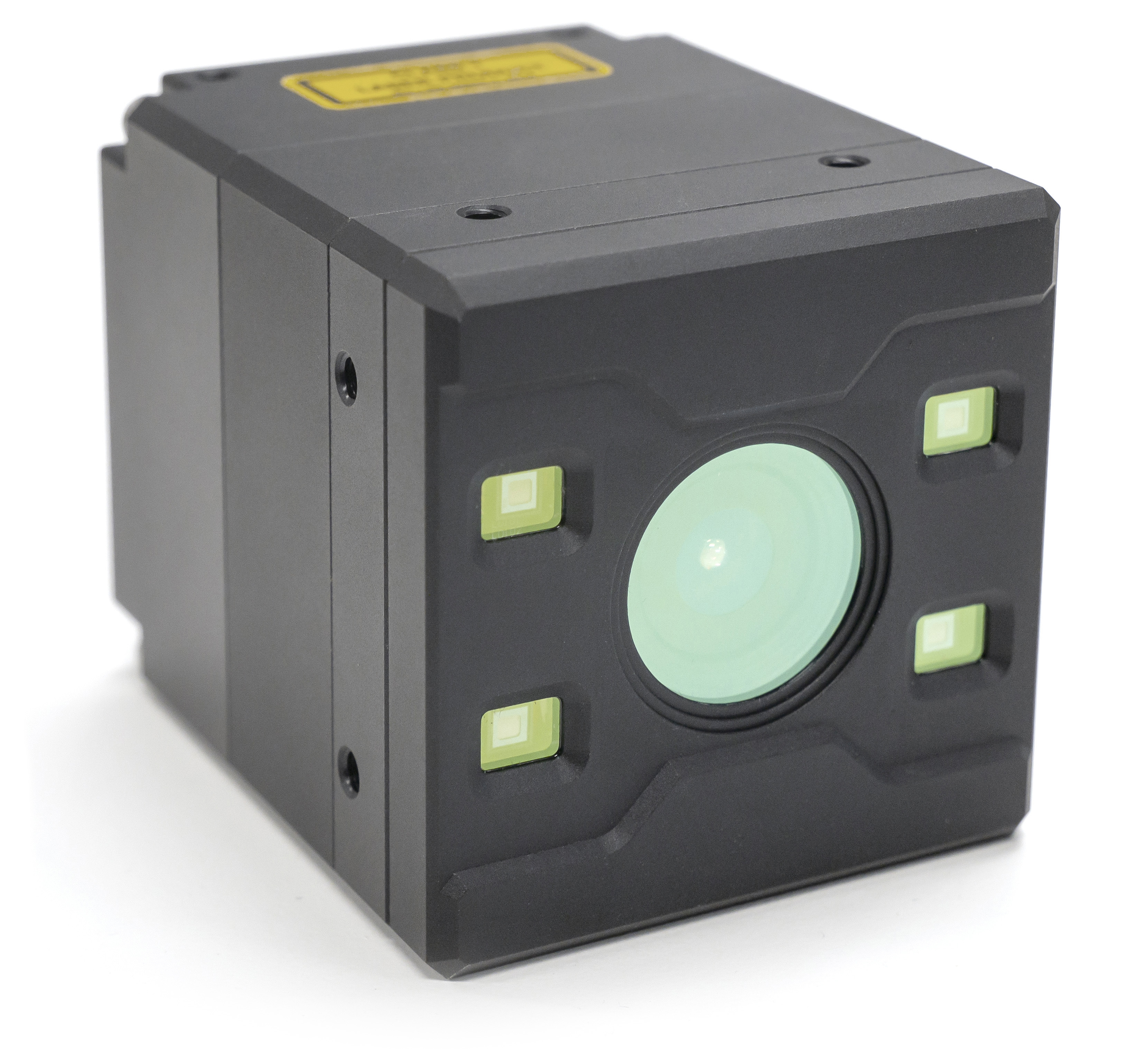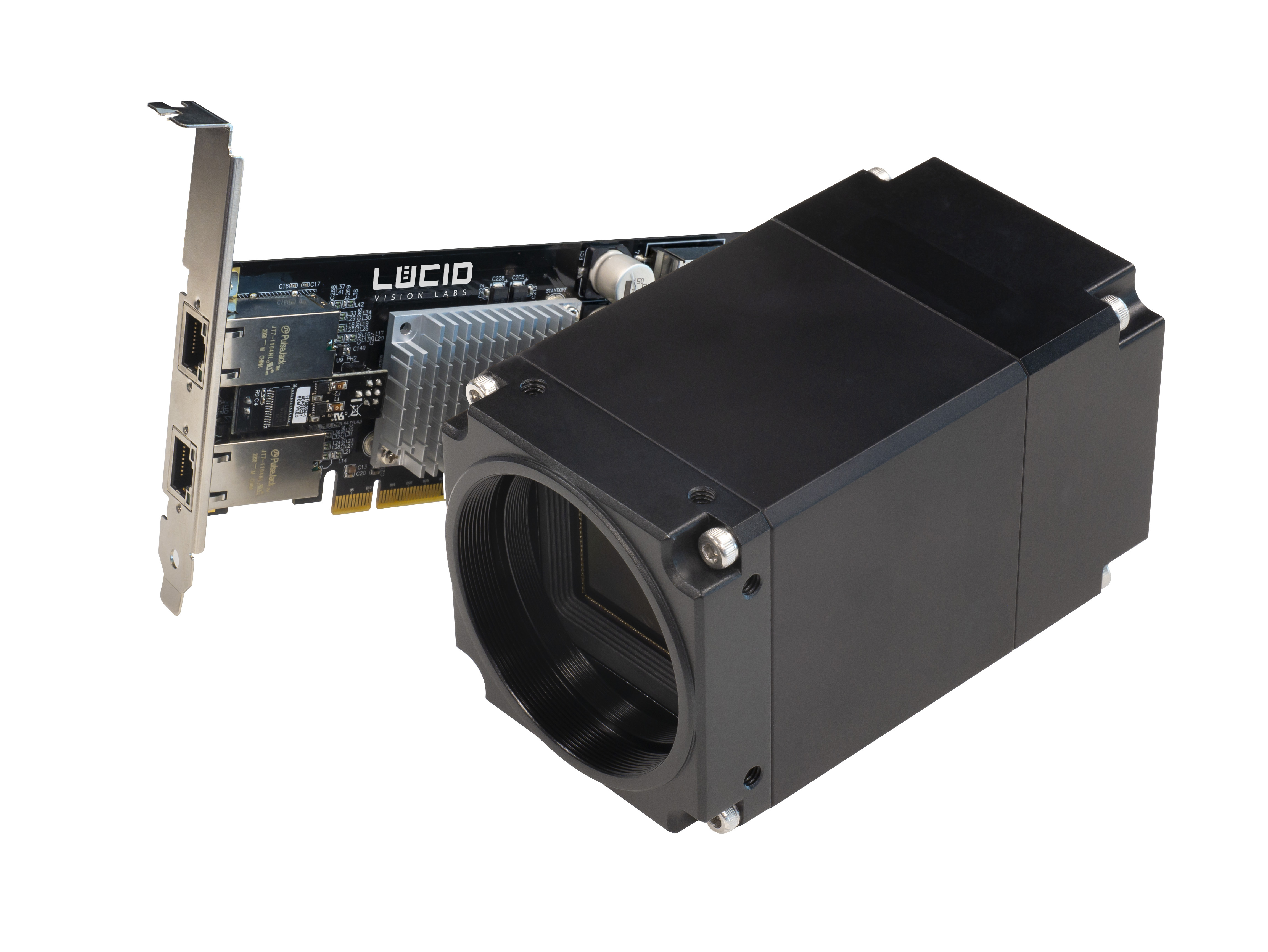LUCID Vision Labs GmbH, based in Ilsfeld, Germany, will present the new Helios2 Wide 3D Time-of-Flight and the Atlas10 camera featuring RDMA at Control, May 9-12, 2023, in Stuttgart, Germany.
3D time-of-flight camera module and RDMA for 10 GigE camera applications
3D Time-of-Flight Camera
Helios2 Wide integrates Sony’s DepthSense™ IMX556PLR back-illuminated ToF image sensor paired with a wide-angle lens providing a 108º angle of view, suited for applications with a close working distance and large area of operation such as full-size palettizing applications. This IP67 Factory Tough™ 3D camera delivers 640 x 480 depth resolution at up to an 8.3 meter working distance and a frame rate of 30 fps.
LUCID’s own Arena SDK includes easy to use controls for the Helios2 ToF camera. The ArenaView GUI can show the intensity and depth of a scene in either a 2D view or a 3D point cloud view, which can be manipulated and oriented in real-time. Additionally, settings can be adjusted and seen in real-time, including false color overlay and depth range.

High-Speed Ethernet Camera

The new Atlas10 with Remote Direct Memory Access (RDMA) reliably streams 1.2 GB/s of data directly to main memory, bypassing the CPU and OS. This increases throughput, lowers latency, and eliminates CPU usage, which is required for reliable multi-10GigE camera applications. The 65 MP Atlas10 is LUCID’s highest resolution camera and features the Gpixel GMAX3265 image sensor. The 65 MP GMAX3265 sensor is sized to fit comfortably behind a 35 mm lens, making it a cost-effective solution for applications ranging from high-end surveillance to high resolution inspection.
By incorporating RDMA RoCE v2 into the GigE Vision standard, consumers who opt for Ethernet-based cameras for their high-bandwidth applications will benefit from faster and more dependable high data transfers.